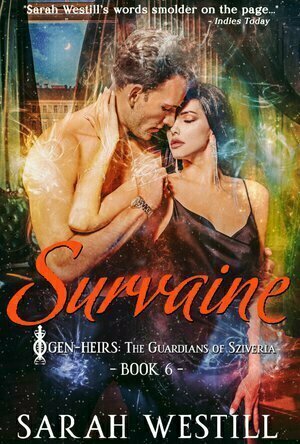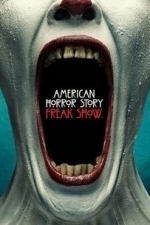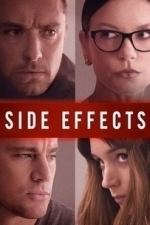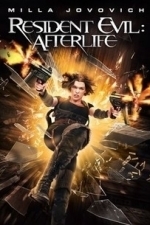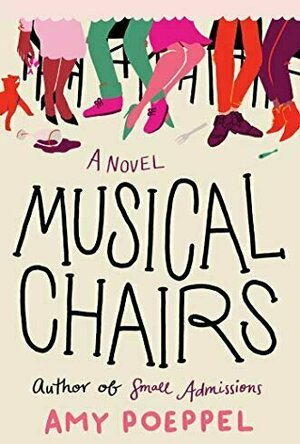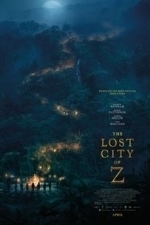Merissa (13749 KP) rated Survaine (Gen-Heirs: The Guardians of Sziveria #6) in Books
Jun 13, 2023
I love this series. Honestly, each book is great in its own way. This one - it was Ramsey and Caiden that were the stars for me. I mean, obviously, it should be; it's their book. It doesn't always work that way though. I loved how Ramsey was uncomfortable and even a little whiny as she dealt with things she'd never had to do before.
It was also good to catch up with others from this series - Sean and Katria plus Jonathan and Sylphine - to see what's going on with them. Others are mentioned as this story moves the story arc along in a big way, which although needed is one of the reasons I felt a little disconnected from Ramsey and Caiden. Take them as separate characters and they are both outstanding. Both of them are strong but not infallible. They draw strength from each other and have an attraction to top the charts - BUT - I felt as though something was missing.
After thinking it over, I've come to the conclusion that it's because this is such an action-packed book. And I know it's necessary and helped move it along, but they never got any downtime. When we're with them, it's either action or wannabe sexy times. There was little in the way of just 'them.' And I missed that as, in the bits we did get, Caiden was so caring and attentive, with Ramsey being so strong and cheeky, I wanted more.
All in all, this was a fantastic read and a wonderful addition to the series. I can't wait to read Deklan's story and I'm really hoping Ryan and Delanee get one too! Definitely recommended by me.
** same worded review will appear elsewhere **
* A copy of this book was provided to me with no requirements for a review. I voluntarily read this book; the comments here are my honest opinion. *
Merissa
Archaeolibrarian - I Dig Good Books!
Jun 13, 2023
LeftSideCut (3776 KP) rated American Horror Story - Season 4 in TV
Nov 18, 2019 (Updated Nov 18, 2019)
It doesn't reach the lofty heights of the first two seasons, but there's plenty to love and it tries something new.
The bulk of the series revolves around Elsa Mars (Jessica Lange) and her group of travelling sideshow performers, all who have some sort of abnormality. As they arrive in 1951 Florida to set up shop and make a living amongst a world that fears and targets them, they are also being eyed up by Richard Spencer (Denis O'Hare), a shady businessman attempting to profit from their misfortune, and Dandy Mott (Finn Wittrock), who harbours an unhealthy obsession with the Freak Show, and in particular, conjoined twins Bette and Dot Tattler (Sarah Paulson).
All the while, a murderous and sinister clown called Twisty (John Carroll Lynch) is on the loose, causing the finger to be pointed at another Freak Show member, Jimmy Darling (Evan Peters).
All of these plot lines running at once actually run side by side pretty smoothly, making for an engaging narrative, with plenty of plot twists along the way.
The Twisty plot line is proper classic slasher horror, and is unfortunately tied up pretty quickly, but it makes way for a surprisingly touching story about family, and what it means to be different.
I found myself caring about almost everybody during Freak Show. It's very well written.
The cast are as usual, pretty great. As well as the cast members mentioned above, we have returning AHS in the likes of Kathy Bates, Francis Conroy, Emma Roberts, Angela Bassett, and Naomi Grossman, as well as some new blood in the form of Michael Chiklis, Erika Ervin, Mat Fraser, Wes Bentley, and Neil Patrick-Harris.
Sarah Paulson is the undisputed highlight during this season, playing two characters at once, with some fantastic effects work going on.
The only character I really struggled to get on board with here was Elsa, which is a shame as she's front and centre. No fault of the great Jessica Lange of course.
The season drags for a while in the mid section, but with so many likable characters, it's not a huge issue.
Freak Show is also the first season that has a concrete connection to other seasons in the AHS story, confirming finally that all the seasons take place in the same universe, which is incredibly exciting, and opens the door for a lot of possibilities.
The gore effects and horror elements continue to be a big plus for AHS, and as always, the anthology format keeps it feeling fresh. Another win for Ryan Murphy and co.
Gareth von Kallenbach (980 KP) rated Side Effects (2013) in Movies
Aug 7, 2019
As its title intones, “Side Effects” is a movie about what can happen when prescription medications, such as anti-depressants, can do at their worst, leading to anyone who taking them wishing they weren’t. The movie certainly starts out looking like a propaganda-film about how Doctor’s push these drugs onto patients as they are paid by pharmaceutical representatives to test their drugs. It seems that everyone in the film is taking meds of some form or another. The cast for the film should be a recipe for success: Jude Law, Rooney Mara, Catherine Zeta-Jones and Channing Tatum. But because of this perception, the first two-thirds of the film nearly put me to sleep. And then a twist happened that the made the plot extremely complex and worth watching. In many ways, the less said about “Side Effects,” the better. This may produce a better experience for you than I had. But here’s the basic idea of the movie:
Emily Taylor, played by Rooney Mara, is introduced when she is visiting her husband Martin (Tatum), a man convicted of insider trading who is about to be released after four years behind bars. Martin’s discharge happens uneventfully, but adjusting to the new life of poverty rehashes the depression that first plagued Emily when her husband’s prison term started. This leads to Emily crashing her car head-on into the wall of the garage in her apartment building. While in the hospital, rules force her to see psychiatrist Jonathan Banks (Law).
Up until this point, I had trouble connecting with Mara’s character. While it is revealed that she had mental problems prior to this episode, you don’t really completely grasp what it is until later in the movie. Mara seemed to be very stiff, and way too much like her emotionless character from “The Girl with the Dragon Tattoo.” But then we enter Jude Law. Law’s character, Banks, is friendly, approachable and caring. He is what first drew me deeper into the movie. Though, you soon discover that he is a doctor who believes in the power of drugs. This character kept me interested because I couldn’t quite nail if he was going to be an antagonist or protagonist.
Of course our dear Dr. Banks prescribes some medications to Emily and she begins showing some disturbing side effects and… The side effects lead to really terrible, bloody things which ruins careers, lives, and even drive people to madness. Or does it?

MediMath Medical Calculator
Health & Fitness, Medical and Reference
App
MediMath puts 144 of the most important medical calculators and scoring tools on your iPad, iPhone,...

Baby Daily Activity Tracker tools iCareRoom Free
Medical and Lifestyle
App
No 1 Baby tracker application in South Korea. More worth than just logging. All the loggings for...

My Kind of Food: Recipes I Love to Cook at Home
Book
My Kind of Food is a very personal book from John Torode, full of the food that he loves to cook and...
LeftSideCut (3776 KP) rated Resident Evil: Afterlife (2010) in Movies
Dec 30, 2020
Paul W.S. Anderson is back at the helm (joy to the world) it's clear that his main intention is to make Milla Jovovich look as "cool" as possible, quipping at every chance given to her. The opening sequence is sort of entertaining, but the over abundance of signature Anderson misplaced arrogant smugness and shoddy CGI violently soils anything positive.
The main bulk of the film is actually a fairly stripped back affair. It's low on scares as per, but I'm not mad at the more grounded feel to proceedings. Just a group of survivors surrounded by zombies, trying to find a solution to their problems. However, this respectable approach to the narrative is squandered. None of the characters are worth caring about, and the few that are, are given no development, as they go through the motions with the smartass-yet-boring script.
In terms of game connections, Ali Larter is back as Claire Redfield, and Wentworth Miller plays Chris Redfield. Kind of cool, of course, but he honestly could have just been playing a dude with a gun. The fact that he is Chris bears no importance to the film. Wesker is there as well but eh. The Majini infected from Resident Evil 5 are present as is The Executioner from the same game. They visually look pretty decent, and unlike previous films, aren't humanised like Nemesis and Tyrant were, so points for that.
The main issue then is all the action. Apart from the dodgy CGI, the set pieces suffer from a truly horrendous amount of slow motion. Not even exaggerating here, if there was no slow motion, the runtime would have been 20 minutes shorter. It's honestly painful. There's also a lot of gimmicky 3D shit being thrown at the camera which I don't really care for - there's just nothing exciting going on.
I'm not sure where else to mention this so I'll put it here, there's not 1, not 2, but 3 seperate scenes that consist of overhead shots of Alice flying a plane with edgy breakbeat music blaring out over it. (Not being chased or anything, just flying and relaxing) Make of that what you will, but basically, everything I hated about the first Resident Evil is still accounted for 8 years later. It's still poorly imitating The Matrix, 11 years later.
I know that these films have a lot of fans, so maybe I'm missing something and being overly spiteful, but I just find them mind numbingly shit. Maybe something will click for me during the last two, but as it stands, Afterlife is the worst of the bunch.
Kristy H (1252 KP) rated Musical Chairs in Books
Sep 17, 2020
This is a charming and funny story. If it sounds all over the place, it's only because it's a reflection on Bridget's life, which is a total mess at the beginning of our tale. Each character in Poeppel's heartfelt tome is wonderful: real and true, standing out on the page as their own person. I fell easily for poor Bridget, hapless Will, the twins, and our host of side characters, ranging from Bridget's very New York-ish sister to Gwen to uppity Edward and his assistant to the local Connecticut townfolk who swarm to try to keep Bridget--and her cottage--from falling apart.
There's a lot of focus on music here--with Bridget, Will, and Edward all musicians, and it makes for a different and lovely book. While plenty of serious things happen, overall this is a sweet and funny story. I found myself smiling and laughing often while reading. There are some downright laugh out loud scenes. Bridget's inability to master technology, coupled with the helplessness of her twins, allow for some wonderful moments. But what really shines through is how much everyone here loves each other--Bridget and her kids, the whole Stratton family, and Will, who is truly part of the clan. How nice to read a book where, even if everyone might fight a day, their compassion and caring for each other shines through.
And, of course, I have a soft spot for any book featuring twins, so I enjoyed a prominent storyline featuring them.
Overall, this is delightful book that offered a wonderful distraction to the woes of the world. It's a funny and kind look at family and friendship, and it simply made me happy. 4+ stars.
Gareth von Kallenbach (980 KP) rated The Lost City of Z (2017) in Movies
Jul 11, 2019
We are introduced to Fawcett as he is an Army Major who seeks to have some sense of distinction and recognition. Seeking notoriety and a sense of honor, Fawcett accepts the task of mapping out disputed territory between Peru and Brazil at the opening of the 20th century in order to prevent war between the two nations.
In his exploits, he is confronted with the exploitation of the indigenous population, extraction of resources, and an untamed land. Upon subsequent journeys and serving in World War I, he is consumed with the need to find a sense of honor in his duty to his nation. Over the course of the film, we begin to see how invested he is in this struggle to learn more about the people and places that he is exploring, however, there isn’t a true connection made between Hunnam’s portrayal and the audience. At times, I found myself not caring about Fawcett’s contributions or career. I could not get invested in his story or his struggle to find a lost city that he believed existed in the wild. By the end of the film, I wasn’t invested in who Fawcett was, what he set out to accomplish, or even his legacy.
One thing that I did find remarkable was that the film helps to expose much of the anxiety and danger that existed during this period and previous expeditions into the region. Additionally, it gave me an appreciation for the endless heights of the human ego, ambition, and drive. The film allows for a critique to emerge about western interference and exploration of the region and the ethnocentrism held by western nations. Lost City of Z is an expansive visual spectacle. The jungle becomes a living, breathing, creature that audiences will connect with, become fearful of, and appreciate. It is the character that carries the film.
The actors and actresses are the background. This aspect allows for the audience to become absorbed by the surroundings and the environment that the characters find themselves in.
The film is beautifully shot and captivating. The sequences are engaging and give the sense of being transported to a foreign, mysterious land that holds secrets that many of us could never comprehend or witness with our own eyes.

RussianBrides - Date&Chat App
Social Networking and Lifestyle
App
Meet & live chat with sexy Russian singles on the popular RussianBrides casual dating app. Discover...
